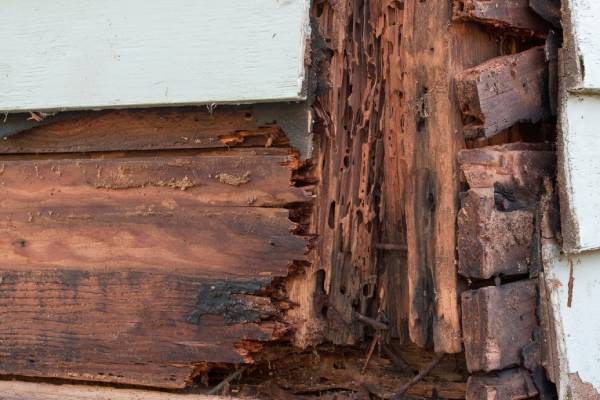Termite Inspections in Riverside – What Happens to Termites in the Winter?

Termite Inspections Reveal Winter Doesn’t Stop an Infestation
There’s a saying, “if you can’t see it, it doesn’t exist.” Although termites may not be seen through the winter, that doesn’t mean they’ve left the area. Termites don’t hibernate. They may not be as active in the winter months, but they can still cause damage if you have an infestation. Here’s what to know about termites and home inspections in Riverside when it’s colder.
Termite Activity in Cold Weather
Subterranean termites are the most common type of termite in California, but drywood termites are also pretty common. These two types of termites are responsible for home damage. Unlike most insects, termites are very active in the winter months. Termites need wood, water, and warmth to survive. Subterranean termites nest in the ground, going even deeper into the soil when the temperatures drop. They can often go deep underground and build mud tubes up to your home to get food and water to make it through the winter. Drywood termites are more likely to slow down in the colder months, but they, too, can survive the winter if they can get out of the cold.
Signs You Have Termites
Termite inspections in Riverside can help you look for termite damage and infestations to protect your home. Your home offers water, warmth, and wood, which means it’s imperative to be on the lookout for termites. Even though you may not see a swarm of termites in the winter, you may still have termites. Some of the signs can be easily missed or mistaken for other pests, but a trained technician can find signs of termites, even in cold weather. You may have mud tubes, both inside and outside your home. You may see damaged wood. Termites also leave discarded wings.
Termite Inspections in Riverside for Prevention and Control
Unfortunately, if you own a home in California, you’ll probably need to deal with termites at some point. Monitoring your home through the years may not prevent termites from moving in, but if you catch them quick enough, they won’t have time to damage as much of the wood. You can also look for termite attractions to prevent them from colonizing. If you have damaged or rotted wood, you should clean it up and make repairs. Soft, rotting wood is easier for them to enter. Don’t rely on your own eyes to find termites. If you aren’t familiar with the signs, it’s easy to miss them. For roof inspections in Riverside, contact HomeGuard Incorporated today!




